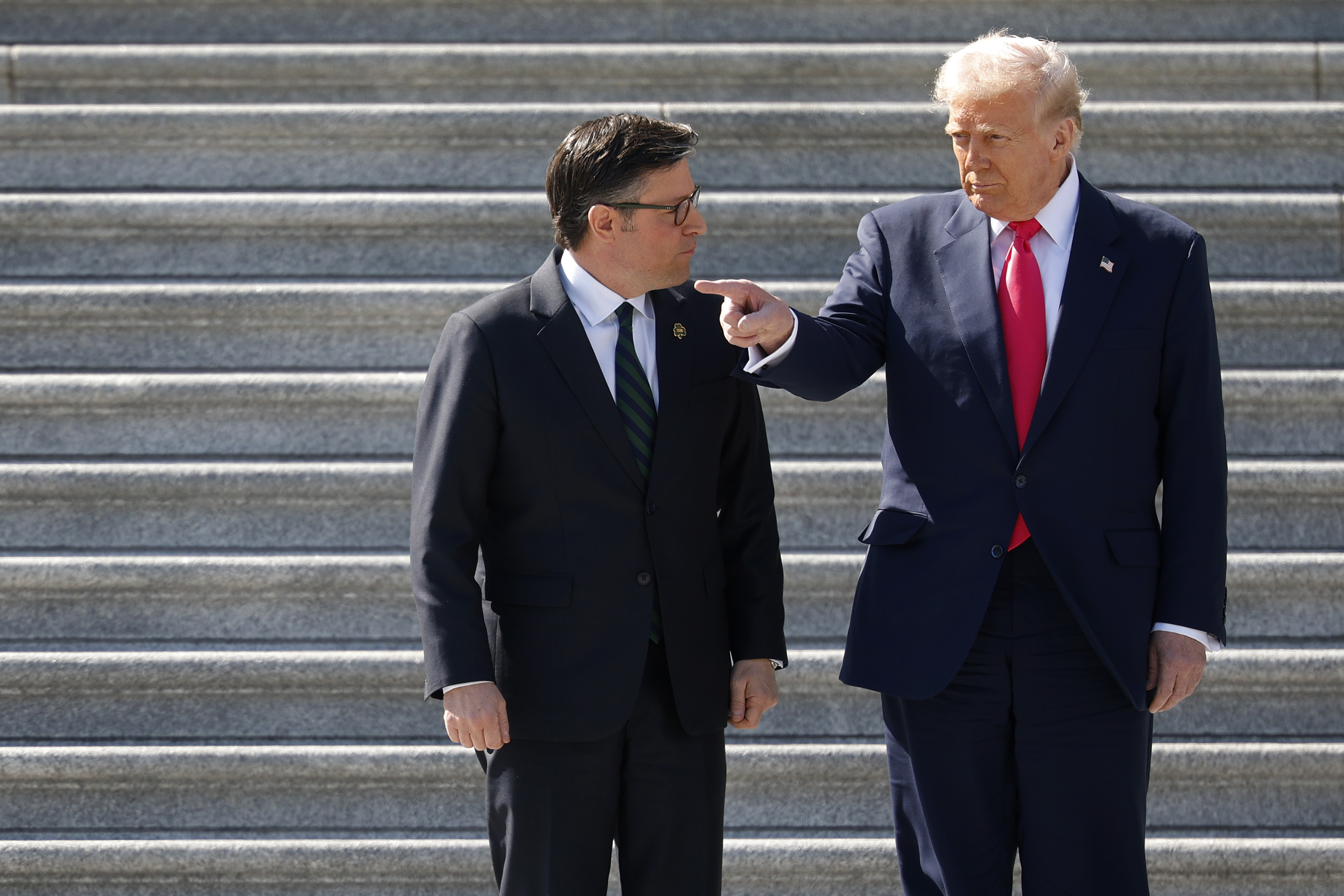A new court filing unsealed Tuesday provides a behind-the-scenes look at how federal agents prepared for and executed the raid on Donald Trump's Mar-a-Lago residence in August 2022, including "deadly force" being within the mission's guidelines.
The raid led to the search and seizure of hundreds of documents containing classified information, ultimately leading to criminal charges against Trump. Last June, the presumptive Republican presidential nominee pleaded not guilty to 37 charges associated with his alleged lack of returning classified material after his term in the White House concluded.
The former president's motion in the U.S. District Court for the Southern District of Florida challenges the legality of the FBI's raid, in addition to the Special Counsel's Office allegedly violating his attorney-client privilege.

An "operations order" of the 9 a.m. raid that was produced in discovery contained a "policy statement" regarding the "use of deadly force," which said in part: "Law enforcement officers of the Department of Justice may use deadly force when necessary."
"The FBI followed standard protocol in this search as we do for all search warrants, which includes a standard policy statement limiting the use of deadly force," an FBI spokesperson told Newsweek via email. "No one ordered additional steps to be taken and there was no departure from the norm in this matter."
Agents at the scene of the raid, who were instructed to wear unmarked polo or collared shirts, had planned to bring "standard issue weapons, ammo, handcuffs and medium and large sized bolt cutters."
A contingencies plan was also created in cohesion with the raid, showing that a paramedic be at the scene in case someone is "injured." The name of the nearest local trauma center, complete with an address and a phone number, was included on the same form.
Contingencies also said that agents "will be prepared to engage with" Trump and U.S. Secret Service should he have arrived at Mar-a-Lago.
The criminal case, one of four currently involving the former president, has led to tense back-and-forth exchanges between Trump, his legal team and Special Counsel Jack Smith of the Department of Justice (DOJ). The ex-president has been in a Manhattan courtroom as his hush money criminal trial continues.
The filing also included Trump's lawyers arguing that the August 8, 2022, raid at Mar-a-Lago was "unconstitutional" and that evidence obtained at the property was an "unlawful violation of President Trump's attorney-client privilege by the Special Counsel's Office."
They called the raid an armed "storming" of a private residence, meant to aid "chief political rival" President Joe Biden while being "personally authorized by Attorney General [Merrick] Garland, and supported over FBI objections by DOJ leadership who did not 'give a damn about the optics' of these unprecedented steps."
Another concern presented by the Trump legal team is that the warrant for the raid itself was flawed and did not meet the criteria of the Fourth Amendment, in that the general warrant allowed a complete search of the 17-acre estate containing 58 bedrooms and 33 bathrooms instead of being confined to specific areas where documents were believed to be stored.
Agents purportedly looked at rooms including a gym, a kitchen, former first lady Melania Trump's master bedroom suite, and a child's bedroom suite used by Trump's son, Barron.
Documents allegedly discovered during the raid, which did not conclude until about 6:40 p.m. that day, were only found in a storage room and in or near a "45 office."
Update 05/22/24, 11:45 a.m. ET: This story was updated with comment from the FBI.
About the writer
Nick Mordowanec is a Newsweek investigative reporter based in Michigan. His focus includes U.S. and international politics and policies, immigration, ... Read more




